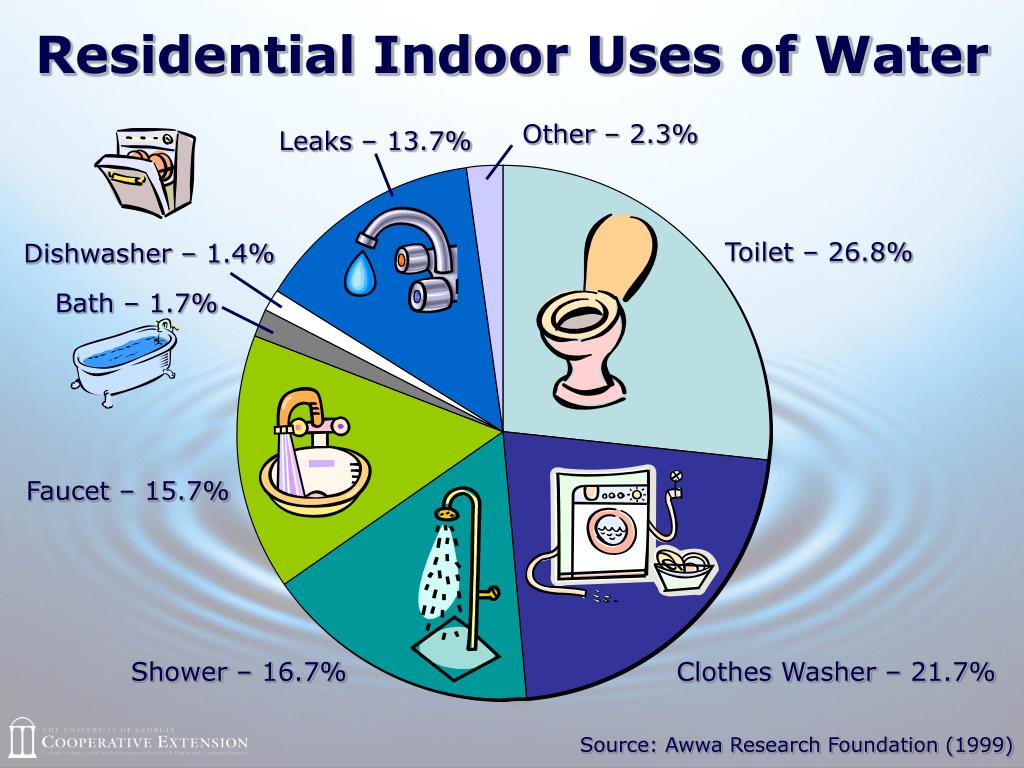
General Water Conservation Tips
- Avoid using the toilet as a trash can for facial tissues, etc.
- Take shorter showers and turn off the shower while soaping
- Install low flow aerators and shower heads
- Turn off the water while brushing your teeth or shaving
- Run dish washers and clothes washing machines only when full and use the proper water level or load size selection on the washing machine
- Repair leaking faucets and toilet (a leaking toilet can waste 200 gallons a day)
- Refrigerate a bottle of drinking water instead of letting a faucet flow until the water is cold enough to drink
- Use a dishpan or plug the sink when rinsing fruits and vegetables. This water can then be used to water plants.
- Use a dishpan or plug the sink for washing and rinsing dishes
- Add your garbage to the trash instead of putting it down the garbage disposal. Disposals use a great deal of water and add unnecessary solids to the sewer or septic system.
Winter Water Conservation Tips
- Winterize outdoor spigots to avoid pipes bursting from freezing.
- Insulate hot water pipes to reduce the amount of water which must be run to get hot water to the faucet.
- Locate the master water shut off valve in your home, and mark it for quick identification. If a water pipe were to burst it could cause flooding and property damage not to mention immense water waste, if the valve were left open.
Summer Water Conservation Tips
- Spreading a layer of organic mulch around plants retains moisture and saves water, time and money
- Check the root zone of your lawn or garden for moisture before watering using a spade or trowel. If it’s still moist 2 inches under the soil surface, you still have enough water. (you can also check this by sticking your finger into the ground).
- Set a kitchen timer when watering your lawn or garden to remind you when to stop. A running hose can discharge up to 10 gallons a minute.
- Use sprinklers that deliver big drops of water close to the ground. Smaller water drops and mist often evaporate before they hit the ground
- Water only when necessary. More plants die from over-watering than from under-watering.
- Dethatch and aerate your lawn at least once a year so water can reach the roots rather than run off the surface.